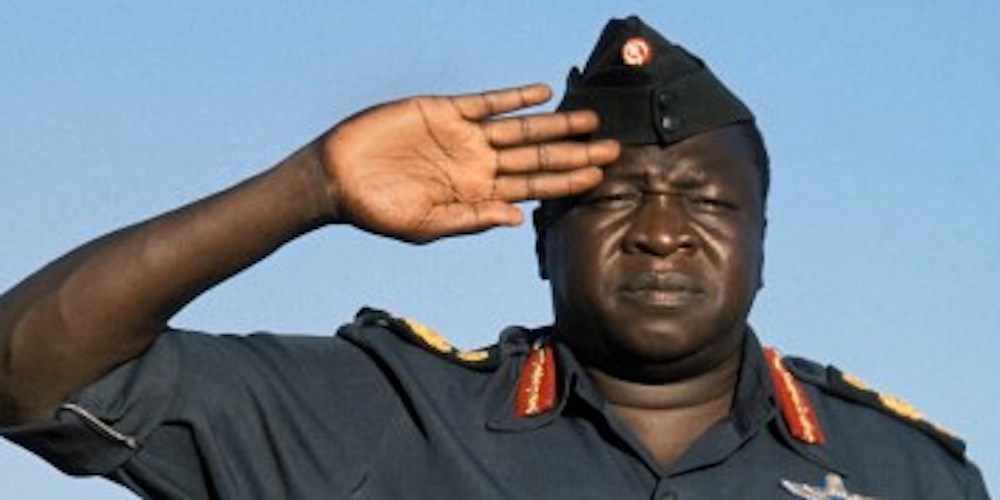Mamdani, Ugandan Indians and Vasanti Makwana

Africa and its Gujarat links figured prominently in Zohran Mamdani’s victory in New York. His middle name, ‘Kwame’, was given by his father as a tribute to Ghana’s Kwame Nkrumah. Next was Uganda, where Zohran was born to Mahmood Mamdani, a Bombay-born Gujarati Muslim whose family has shuttled between Gujarat and Uganda.
Mahmood met and married Indian-origin filmmaker Mira Nair when she was researching for the film “Mississippi Masala”. It is about how Ugandan Gujaratis expelled by Idi Amin struggled to live in Mississippi, in distant America. It earned a standing ovation at the 1992 Sundance Film Festival and won three awards at the Venice Film Festival.
The Gujaratis’ migration to Uganda began a century ago. They were called “passenger Indians” because they followed the Punjabis who had worked on British-ruled Uganda’s railway project. Gujarati traders, both Hindus and Muslims, thrived in Uganda till Amin became its ruler in 1969. A brutal dictator to fellow Africans, he called the Asians ‘exploiters’ and targeted them.
Amin accused this minority of disloyalty and commercial malpractice, claims that it disputed. Why he expelled South Asians remains a mix of fact and fiction. One story was that he was keen to marry an Indian lady who rejected his overture. His former supporters suggest that it followed a dream in which he claimed Allah had told him to expel them. Amin defended the expulsion by arguing that he was returning Uganda to the ethnic Ugandans. But many who returned after he was gone were welcomed.
When expelled, there were about 80,000 South Asians — Indians, Pakistanis, and Bangladeshis — of whom 23,000 had their applications for citizenship both processed and accepted. A further 50,000 were British passport holders.
The military dictator, accused of killing between one lakh and five lakh people, condemned worldwide, was ousted from power in 1979.
Another story begins here. A 14-year-old girl whose parents came from Gujarat was one of those expelled. Vasanti Makwana’s early education was in British Schools in Uganda, before the family relocated to Britain. She later moved to Canada. A well-qualified nurse, she was working for King Faisal Specialist Hospital and Research Centre in Jeddah, Saudi Arabia.
She got a telephone call at 2.30 am to perform hemodialysis on a ‘VIP’ patient. She was told, “The patient is Idi Amin Dada”. Read her story in her words.
“I thought it could not be the man of my childhood nightmares! Suddenly, a very big man was wheeled in from the emergency unit. His large feet were dangling over the stretcher. He had an oxygen mask over his nose and mouth with the tubing attached to the oxygen cylinder.”

My heart started to pound faster, and I thought people around me could hear it! I was very near the patient and could see that he was not doing well at all. His breathing was very laboured, his heart rate was very fast, and despite having an oxygen mask, the oxygen saturation in his body was quite low.
Suddenly, he got hold of my arm. I was terrified and stood almost motionless. All the childhood memories and nightmares came rushing in. My mind was cautioning me: Vasanti, compose yourself! He is an old man. He cannot harm you. He needs your help now!
In his feeble voice, he said, holding my arm: “Please help me … I’m very sick”. I got the courage to reassure him: “Sir, you are in good hands, and we will help you get better.”
I was left alone with him before the ICU staff came in to stabilise him. He was looking at me, as if pleading for his life. He was desperate that we dialyse him and remove the extra fluids pressing on his lungs, which would help him breathe easier.
I only had a few minutes to tell him what I wanted. I was virtually shaking, but I picked up enough courage to speak. I looked straight into those frightened eyes and told him: “Look at me. I am one of those Asians you had thrown out of Uganda all those years ago”.
His eyes widened. I could see his facial demeanour change as the fog of yesteryear started to clear in his head. The fear I saw in those eyes, I will never forget.
That look is etched in my mind. For a split second, all my childhood nightmares about this man just evaporated, and I had the power back.
He was a pathetic, sick old man fighting for his life, perhaps realising that the person who was supposed to help make him better is someone he had wronged.
I held his gaze, sighed, and said, “Don’t be afraid. I won’t harm you. I’ll help you get better. But I want you to know that my father lived and died in Britain. It was never his home, and he never forgave you. You evicted us and stole everything from us. But we Ugandan Asians are doing very well.”
Under the care of the ICU staff, he was stabilised, and I was able to give him dialysis. His condition improved, but later, he developed what is known as Toxic Epidermal Necrolysis (TEN).
Much of the skin from his body was peeling away, exposing the underlying tissues, veins and parts of muscle. I saw the peeling of his skin from his legs, like socks coming off his feet. It must be excruciatingly painful. Even in his comatose state, despite being given intravenous pain medications, we could see his body twitching and writhing in pain.
Idi Amin died a painful death on August 16, 2003. I would not wish such a painful death for even my worst enemy. He had paid his dues in full in this life. Perhaps, in his last coherent thoughts, he had the face of this Ugandan Asian woman etched on his mind!
“I believe that karma always catches up to you. Whatever goes around, comes around,” Vasanti says.


